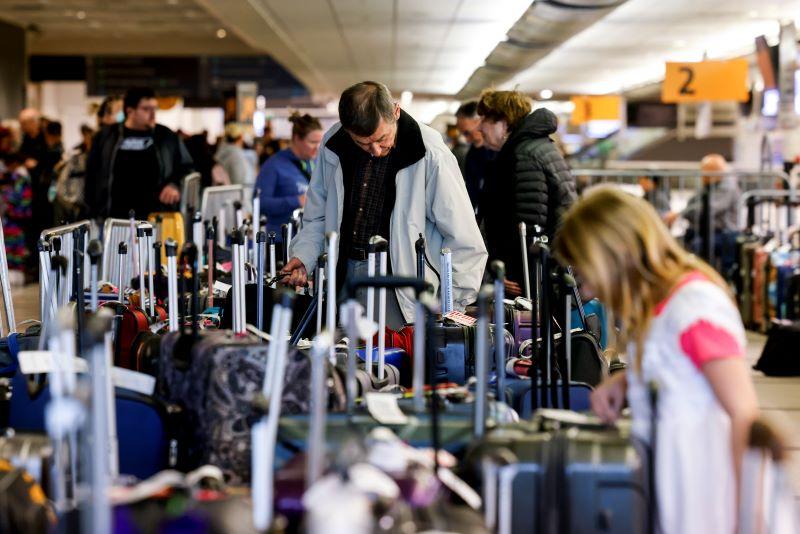
A proposed rulemaking seeks to mandate passenger compensation for “controllable” flight delays and cancellations.
Within its launch of the proposed rule, the U.S. Transportation Department (DOT) says it plans to define “controllable cancellation and delay,” and in those cases would require airlines to compensate passengers and cover expenses including meals, hotels, and rebooking.
Though no timing on the rule was noted, a DOT spokesperson told Aviation Week, “This is a priority for the administration, and we’re working expeditiously to issue a proposal.”
In reaction to the pre-launch announcement, advocacy group Airlines For America (A4A) pointed to an airline focus on safety—with weather named as a prime culprit behind canceled and delayed flights.
“U.S. airlines have no incentive to delay or cancel a flight and do everything in their control to ensure flights depart and arrive on time—but safety is always the top priority,” an A4A spokesperson said. “One of the biggest impacts on flight operations is weather, and in 2022, more than half of flight cancellations were caused by extreme weather. Thus far in 2023, the majority of flight cancellations have been because of ATC [air traffic control] outages and severe weather. Carriers have taken responsibility for challenges within their control and continue working diligently to improve operational reliability.”
A4A said steps taken by airlines to improve reliability include the launch of hiring campaigns, and by reducing schedules to help alleviate expected National Airspace System (NAS) congestion as FAA contends with ATC staffing shortages. According to its analysis of BTS data, of the 87,564 flight cancellations between August 2022-February 2023, 33.7% were attributable to carriers, 58% to weather, 8% to NAS, and 0.3% to security.
“In 2022, carriers reduced their schedules by about 15% to alleviate pressure on the National Airspace System (NAS), and U.S. airlines are currently accommodating record demand while operating 10% fewer flights than in 2019 to reduce pressure on the system,” A4A noted.
The proposed DOT rulemaking comes amid the agency’s enhanced scrutiny on airline customer service policies, including family seating procedures, for which it published a tracking dashboard in March.
DOT has now expanded the Airline Customer Service Dashboard it launched in September 2022, adding three categories to its “commitments for controllable cancellations” and “commitments for controllable delays” grids. The categories track which airlines guarantee cash compensation, travel credit/voucher and frequent flyer miles for controllable delays or cancellations of three hours or more.
Of the 10 tracked carriers—a mix of mainline, low-cost and ULCCs—it identifies just two airlines as guaranteeing travel credits or vouchers in those instances: Alaska Air and JetBlue. Alaska, it notes, also guarantees frequent flyer miles.
“No airline guarantees cash compensation when an airline issue causes the significant delay or cancellation,” DOT states, adding, “the Department believes that this rulemaking could result in improved airline on-time performance.”
